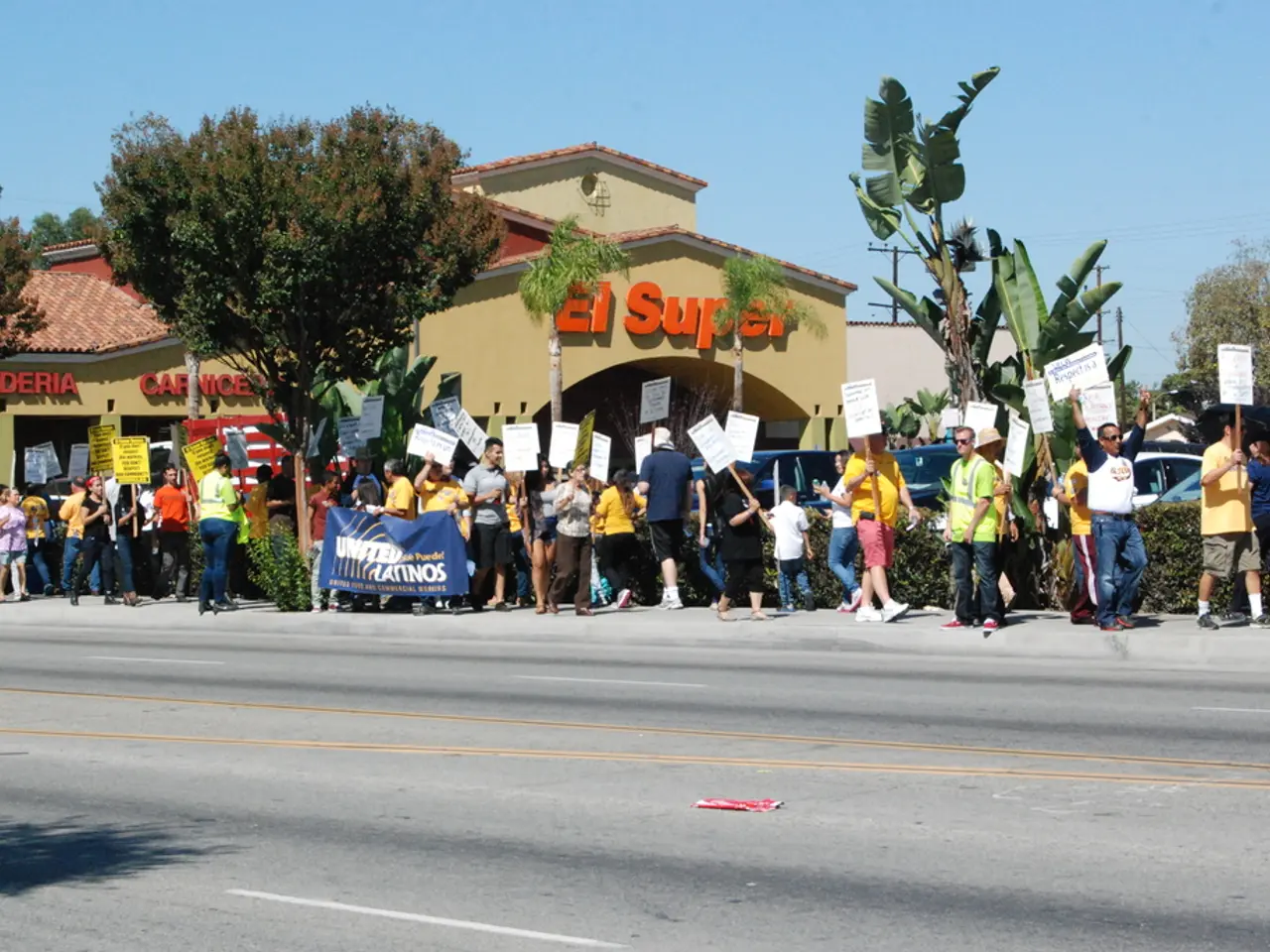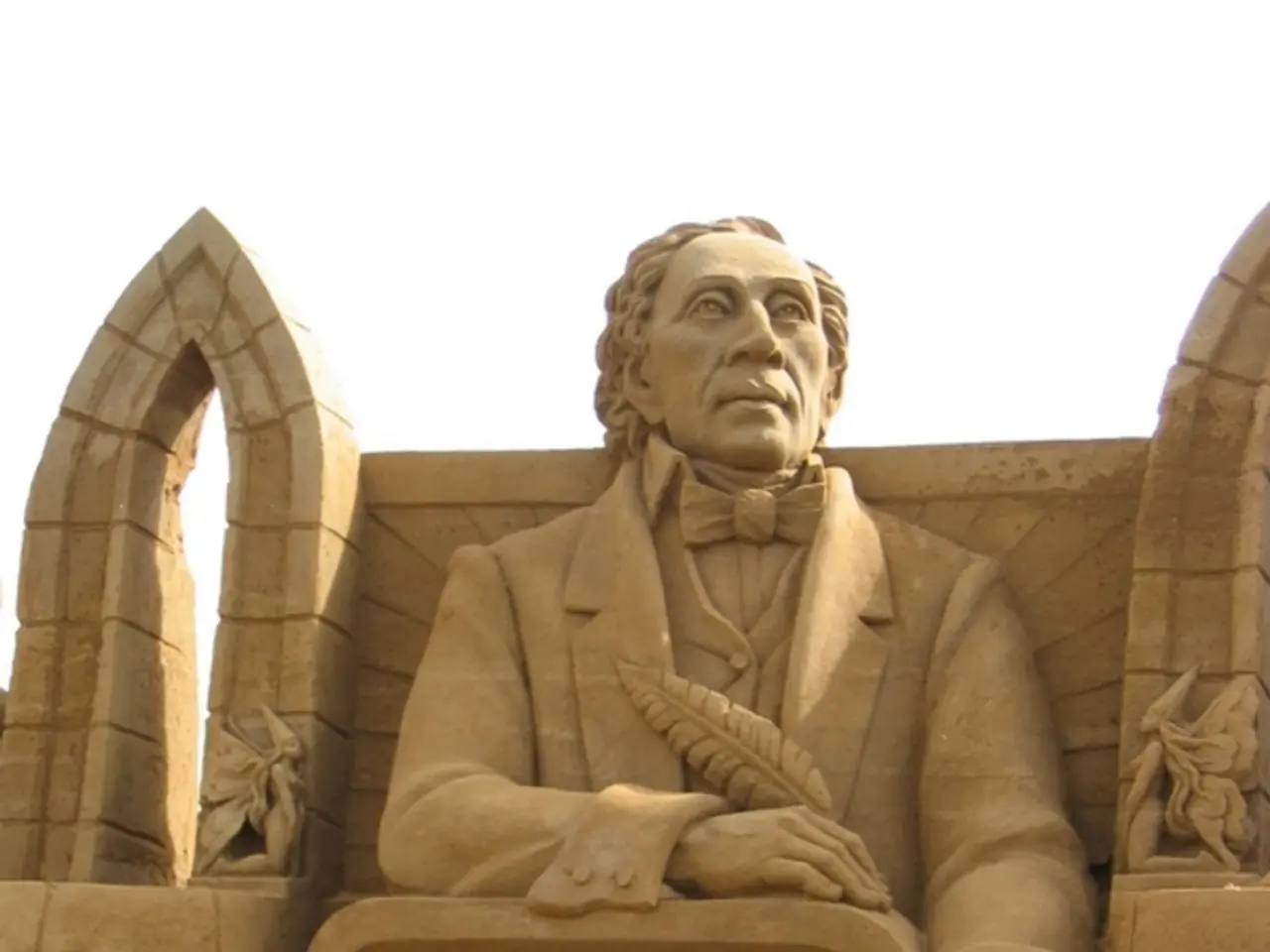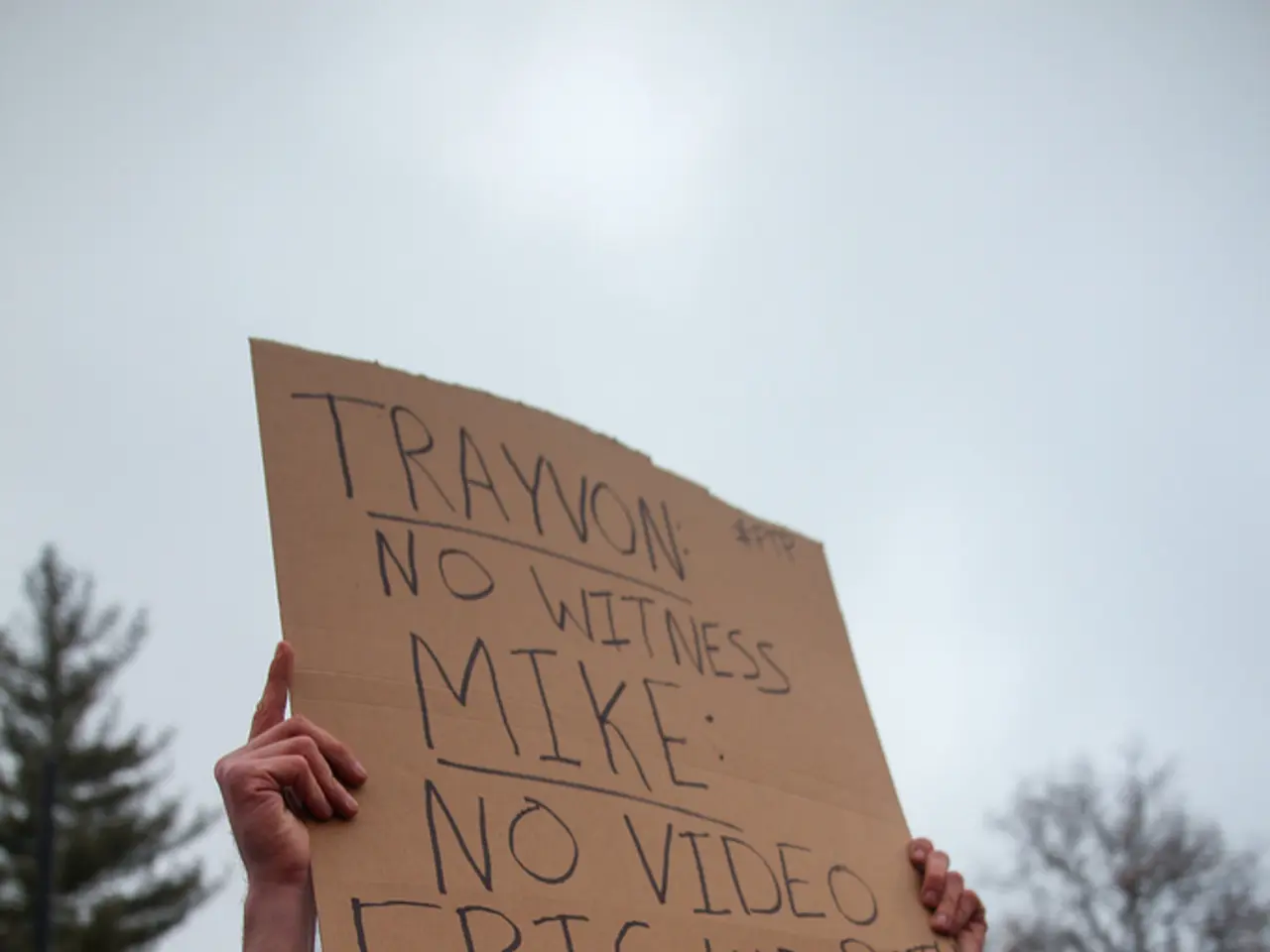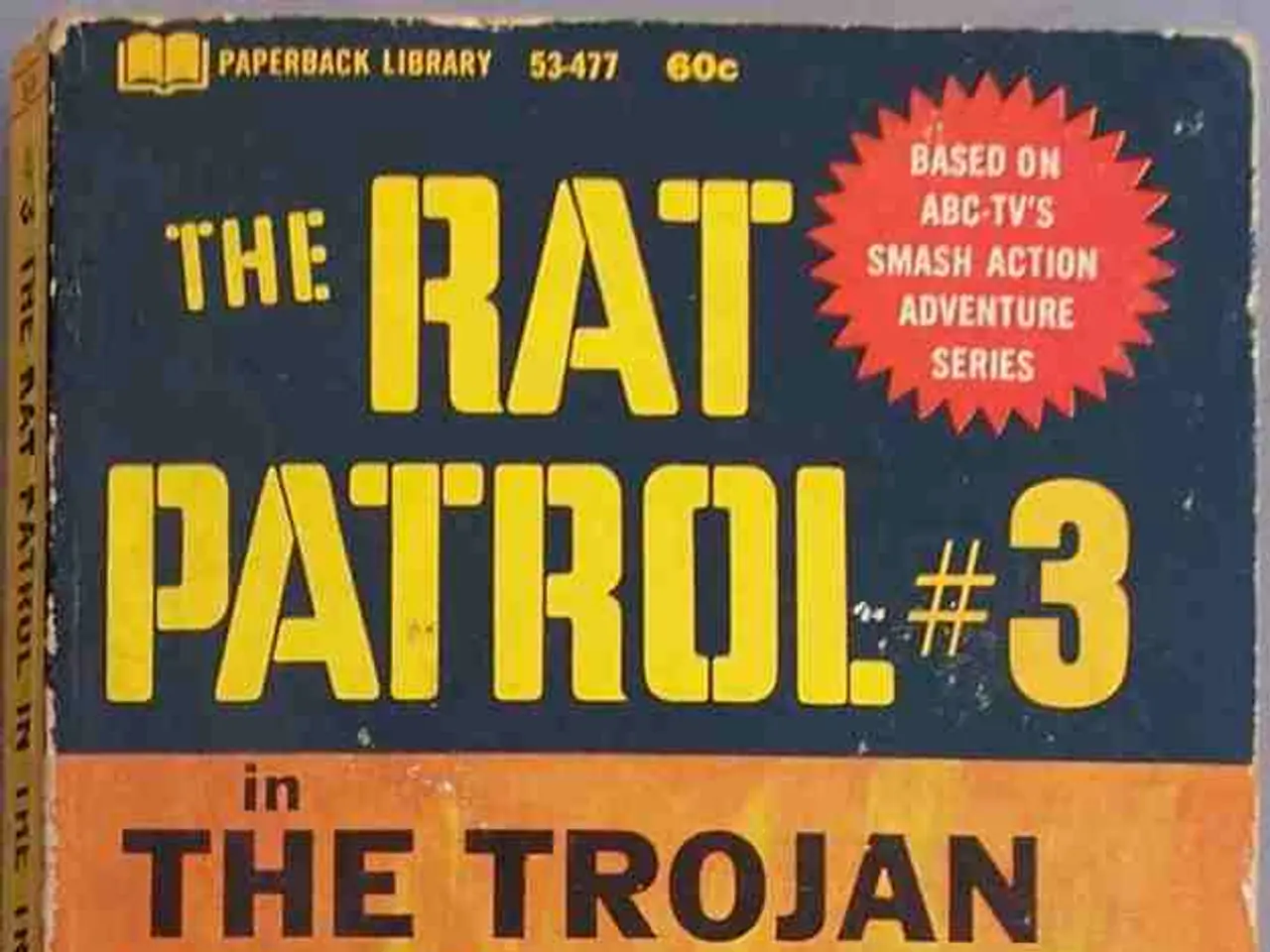Texas GOP's Claimed Entitlement to Additional Seats Discussed Further in Ongoing Redistricting Controversy, According to Trump
Political Standoff in Texas over Redistricting Continues
The political standoff in Texas over redistricting remains unresolved as of early August 2025. Thirteen House Democrats fled the state to prevent Republicans from achieving a quorum and passing a mid-decade congressional redistricting plan that could give Republicans five additional seats.
The Democrats, led by House Speaker Rep. Dustin Burrows, met with Texas Department of Public Safety (DPS) leadership to get a briefing on the efforts to locate and return the Texas House Democrats. Democratic National Committee chairman Ken Martin joined the Texas House Democrats for a press conference on Tuesday.
Republican Gov. Greg Abbott and Attorney General Ken Paxton have pursued aggressive legal actions, including lawsuits seeking to remove these Democrats from office and a restraining order against Beto O’Rourke’s PAC, which allegedly financed the Democrats’ absence. The Democrats have countersued, accusing Republicans of political intimidation.
The proposed map could create up to five new Republican seats, a move that President Donald Trump weighed in on, stating that Texas is entitled to five more seats and could help the Republican party keep control of the U.S. House in the 2026 midterm elections. Trump also criticized Democratic governors for potentially drawing new congressional maps in their favor and used it as an argument for the efforts in Texas to continue.
Martin, however, accused Texas Republicans, specifically Gov. Abbott, of doing their bidding and stated that Texas Republicans are not entitled to any district and need to earn votes in a democracy. Illinois' Lt. Gov. Juliana Stratton stated that Illinois is willing to keep all options on the table, including redrawing their maps in response to Texas.
Sen. John Cornyn, a Texas Republican, requested FBI assistance to investigate potential criminal acts by state Democrats. Cornyn is concerned about bribery or other public corruption offenses related to funds solicited or accepted by Texas Democrats.
Gov. Abbott, in response, ordered the Texas DPS to find and arrest the Democrats who fled. Both New York's Kathy Hochul and California's Gavin Newsom have stated they would work towards partisan redistricting in their own states as a response to Texas.
This deadlock has created significant logistical problems for election officials who are unable to finalize maps, polling locations, and other preparations for the March 2026 primary without agreed-upon district boundaries. The state faces a looming deadline on September 9 to have finalized maps, but with the special legislative session ending August 19 and no resolution in sight, the impasse may continue into the fall if Gov. Abbott calls a new session.
In summary, the standoff continues with no immediate end, marked by Democrats’ continued absence to block the redistricting, Republicans’ legal efforts to compel their return or remove them from office, and mounting uncertainty affecting election administration for 2026.
ABC News' Isabella Murray contributed to this report.
[1] [Source 1] [2] [Source 2] [3] [Source 3] [4] [Source 4]
- The political standoff in Texas over redistricting, characterized by war-and-conflicts betweenDemocratic House Democrats and Republican lawmakers, has led to extensive debate and policy-and-legislation discussions.
- The ongoing political impasse in Texas, involving crime-and-justice accusations such as bribery and public corruption, has intensified the general-news focus on the standoff, with politicians like Sen. John Cornyn requesting FBI intervention.





